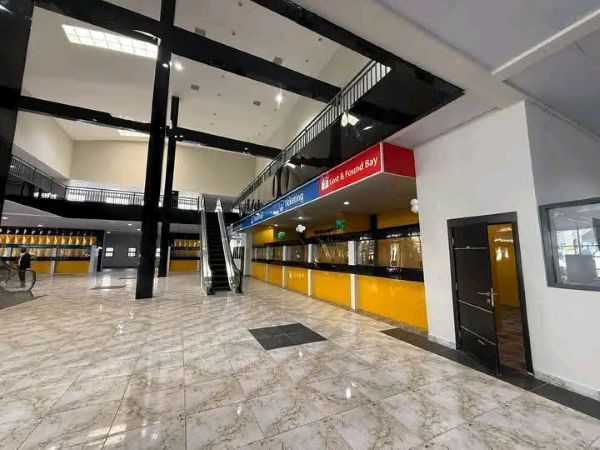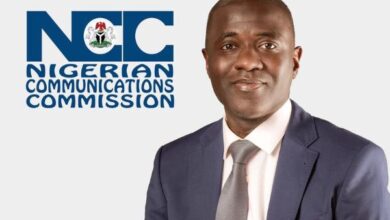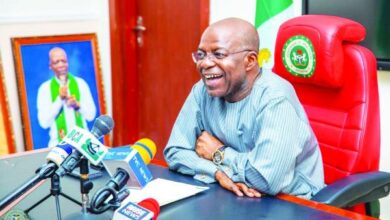Mbah kickstarts on CNG Transport Revolution to Create 20,000 Jobs, Boost Enugu GDP

Enugu State Governor, Dr. Peter Mbah, has taken a bold step toward modernising public transportation and driving economic growth with the inauguration of 100 Compressed Natural Gas (CNG) buses, five world-class bus terminals, and a fully integrated transport management system.
The move, unveiled in Enugu on Thursday, is projected to create no fewer than 20,000 jobs while slashing transport costs by over 40% for households—a direct relief for residents grappling with rising living expenses.
Mbah declared that the projects, which include modern terminals at Holy Ghost, Gariki, Abakpa, and Nsukka, are critical building blocks in his administration’s ambition to grow Enugu State’s GDP to $30 billion within six years, while contributing to Nigeria’s broader $1 trillion GDP target.
From Fuel Subsidy Removal to CNG Transition
Speaking at the event, Mbah credited President Bola Tinubu’s controversial yet strategic fuel subsidy removal for catalysing a shift toward cleaner, cheaper energy alternatives.
“Transport remains the central pillar of modernisation and a measure of the people’s progress,” Mbah stated. “By embracing CNG and hybrid technologies, we are not just improving mobility—we are reimagining our economy and standard of living.”
The CNG buses, fully air-conditioned and disability-friendly, will prioritise routes servicing schools, higher institutions, markets, and other high-demand corridors. The state also plans to deploy 2,000 hybrid vehicles as part of the next phase of the initiative.
Economic and Development Impact
From a development economist’s perspective, the implications are significant:
- Job Creation – The projected 20,000 jobs span direct transport operations, terminal management, maintenance, and ancillary services like retail, hospitality, and fuel supply.
- Productivity Gains – Reduced commuting costs and time will likely improve workforce productivity, while lowering household transport expenditure frees up disposable income for other essentials.
- Urban Renewal – The state is remodelling bus stops, rebuilding key roads, and embedding a modern e-ticketing system to plug revenue leakages—a governance reform that could significantly improve public finance efficiency.
- Environmental Benefits – Transitioning from petrol to CNG lowers carbon emissions, aligning Enugu with Nigeria’s clean energy and climate resilience commitments.
These interventions are designed not just as infrastructure upgrades but as GDP multipliers—integrating transport reform with tourism, trade, and city planning.
Terminals as Economic Hubs
Enugu’s new transport terminals are designed as multi-service mobility hubs, with the capacity to host over 10 million commuters annually. Each facility is equipped with:
- Fully air-conditioned halls with television screens
- Eateries and lodging accommodation
- Fuel stations
- Solar-powered security lighting and CCTV surveillance
- Covered walkways and climate-friendly architecture
Such features move beyond basic transportation—they reposition terminals as commercial and social nodes capable of generating sustained economic activity.
A Broader Modernisation Agenda
Mbah’s transport reforms are part of a wider modernisation blueprint that includes:
- Enugu Air (launched weeks ago)
- Planned rail and waterway transport services
- Smart schools and next-generation healthcare centres
- Citywide security surveillance systems
These combined efforts signal a shift from ad-hoc infrastructure projects to a cohesive, future-oriented urban development strategy.
Analyst Insight
In the broader Nigerian context, Enugu’s CNG push sets a precedent for other states seeking to cushion the economic impact of subsidy removal while modernising urban mobility. If executed efficiently, this model could be replicated nationwide, delivering cost savings for citizens, attracting private investment into the transport sector, and advancing the national decarbonisation agenda.
However, the long-term success hinges on sustainable financing, disciplined maintenance culture, and transparent operational management—areas where many Nigerian transport reforms have historically faltered.
Bottom line:
Governor Mbah’s CNG-driven transport modernisation is not just a mobility upgrade; it’s a strategic economic intervention—one that blends clean energy adoption with urban renewal, job creation, and governance reform. If momentum is maintained, Enugu could very well emerge as a benchmark for 21st-century public transport in Nigeria.










